Labour shortage does not deter them as they themselves don the role of labourers
Srirangapatna: As a devastating COVID-19 second wave tears through the lives, farmers in Mysuru and Mandya have defied the odds to nearly complete paddy harvesting as they prepare for the oncoming rainy season to grow fresh crops.
The farming sector has largely remained unaffected during the lockdown at a time when economic activity ground to a halt in cities. They have kept their date with the farm calendar, thanks to their resilience, unity and also camaraderie. They have been able to tide over the acute labour crisis and have gone in for extensive harvesting through mechanisation and also cooperative farming.
Their timely agricultural operations despite surging infections have ensured stable food supplies and farm incomes. Even the inroads made by the virus into rural areas have not affected them. A good monsoon last year ensured a bumper paddy crop harvest in Mysuru and Mandya this year.
But due to the pandemic, tonnes of paddy were destined to rot in the fields. Realising the crisis, farmers got together and took the issue head-on. On any harvest season, thousands of labourers come to Mandya and Mysuru from various nook and corner from Nanjangud, Chamarajanagar, Kollegal and other places.
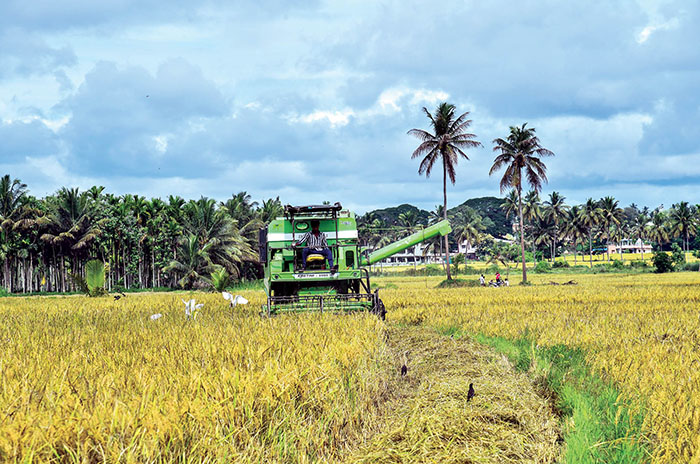
They mainly camped in paddy-rich Srirangapatna and on the outskirts of Mysuru where paddy is still grown. If they come days before the harvest, they stay till the next crop sowing and transplantation is done. That means, the labourers stay here till over six months. Due to COVID this year and lack of transportation facilities, there has been not even a trickle of labourers from outside.
Sensing the problem early, farmers themselves pooled in labour and helped each other in a sort of cooperative farming. Each farmer’s house has a minimum of five members and including brothers and sisters and also their uncles and aunts, the number grows to 14 or 16. Likewise, families got on to the fields in groups of 30 to 60 members and took up harvesting activities.
The labour cost is paid on a day-to-day basis where farmers are donning the role of labourers in fields. Both men and women are part of this activity that includes cutting of the paddy stalk, arranging them and tying the sheaves to be transported to yards where the grain is separated. Every village has such groups and while smaller villages have 50 to 60 persons, bigger ones have up to 100 and the field acreage too is large.
“Over 2,500 acres in Srirangapatna are ready for harvesting and there are 20,000 acres in Mandya district where paddy is being harvested. This practice is both beneficial to farmers and the fields where work like harvesting, sowing and transplantation are taken up among their own and they can also save on excessive payments to labourers from other places. Usually they take loans from farmers promising to arrive the next season but never turn up,” said Nishanth Keelara, Assistant Director, Agricultural Department, Srirangapatna.
Farmers are also dependent on mechanised harvesting by giant machines that come from Tamil Nadu. Owners of such vehicles send the giant machines with a driver overnight to Mandya and Mysuru. Babu, a dealer of such giant harvesting machines, said that one machine can harvest seven acres of paddy land per day. Once the paddy is harvested, the machine separates the grain from the sheaves and neatly bundles the grass. It is a hassle-free mechanisation but expensive.
For each hour of harvest, a farmer has to pay Rs. 2,500 and many farmers are relying on these machines as they never know when it will start raining. Rain will damage the paddy completely.
“This year, over 100 harvesting machines have come from Tamil Nadu,” he added. These machines go from district to district depending on the readiness of the crop to harvest. Each week thousands of acres of paddy fields are polished clean and the machines leave for Tamil Nadu later, he added.
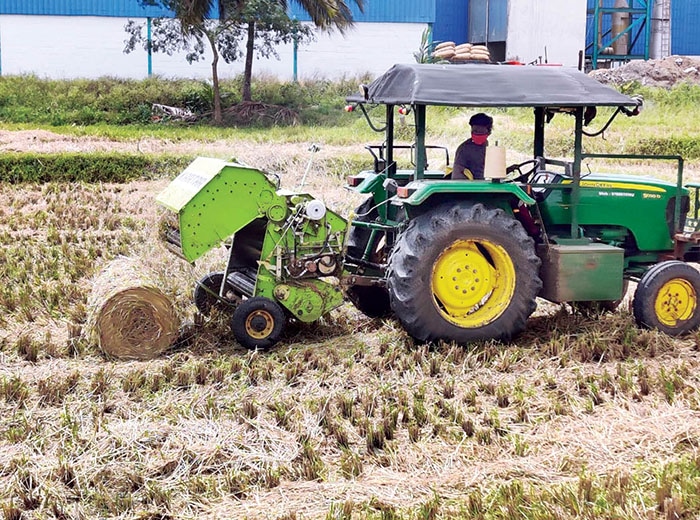
Tarpaulin shortage
This year, the farmers are falling short of tarpaulins as the regular tarpaulin suppliers and brokers have not arrived from Andhra Pradesh with the material due to lockdown. They too come to Srirangapatna and camp along with the machine drivers and cleaners.
Even the Agricultural Department has failed to make any alternative arrangements and it is a common sight to see farmers queuing up in front of Raitha Samparka Kendra for tarpaulins. Farmers need tarpaulins to collect the grains from the harvesting machines after it dumps them in a particular area.
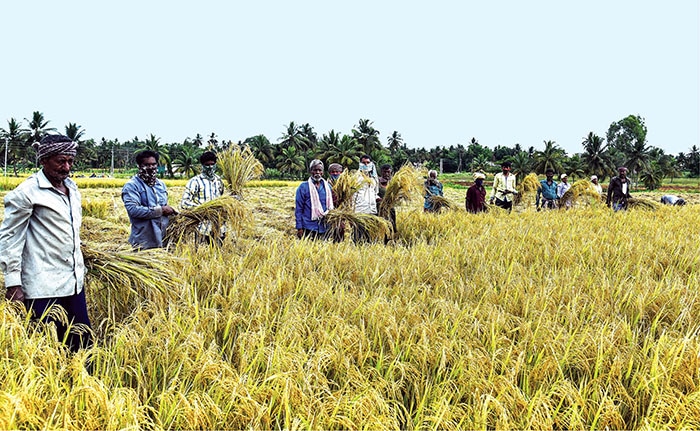
As the grain storage compartment in the harvesting machine turns full, the compartment has to be emptied to take in fresh grains. As such, the machines dump the freshly extracted grains on the tarpaulins that are in turn filled into gunny bags by farmers. Unfortunately the farmers who depend on mechanised farming are hit by tarpaulin shortage.
The officers are telling farmers not to depend on other States for their harvesting and tarpaulin requirement and purchase locally available material with subsidies given by the Government.



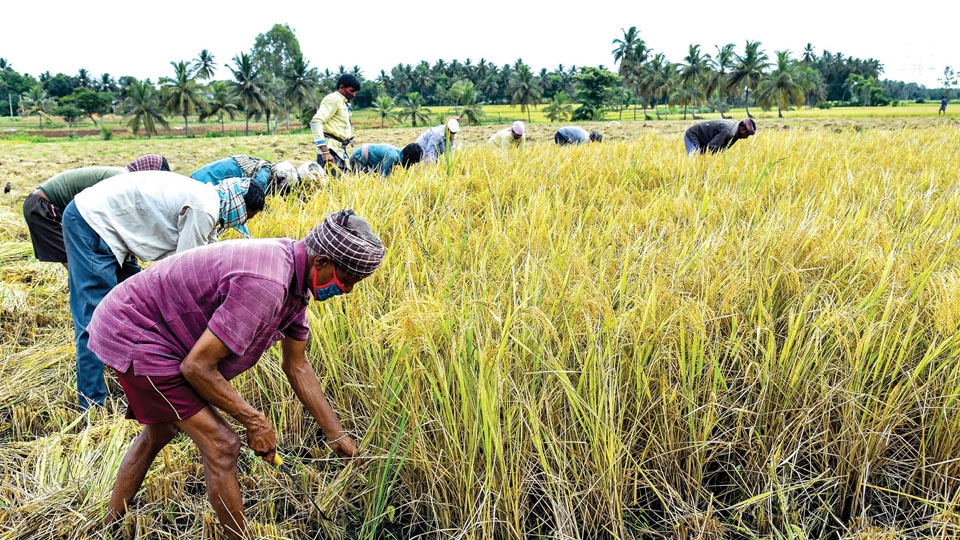
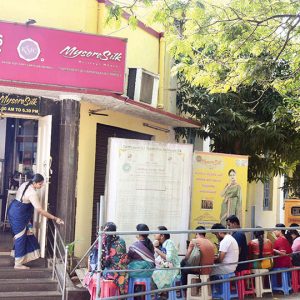
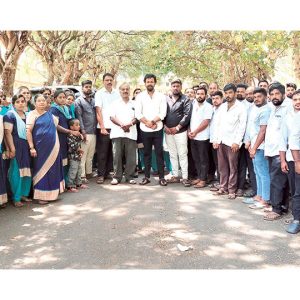


Recent Comments